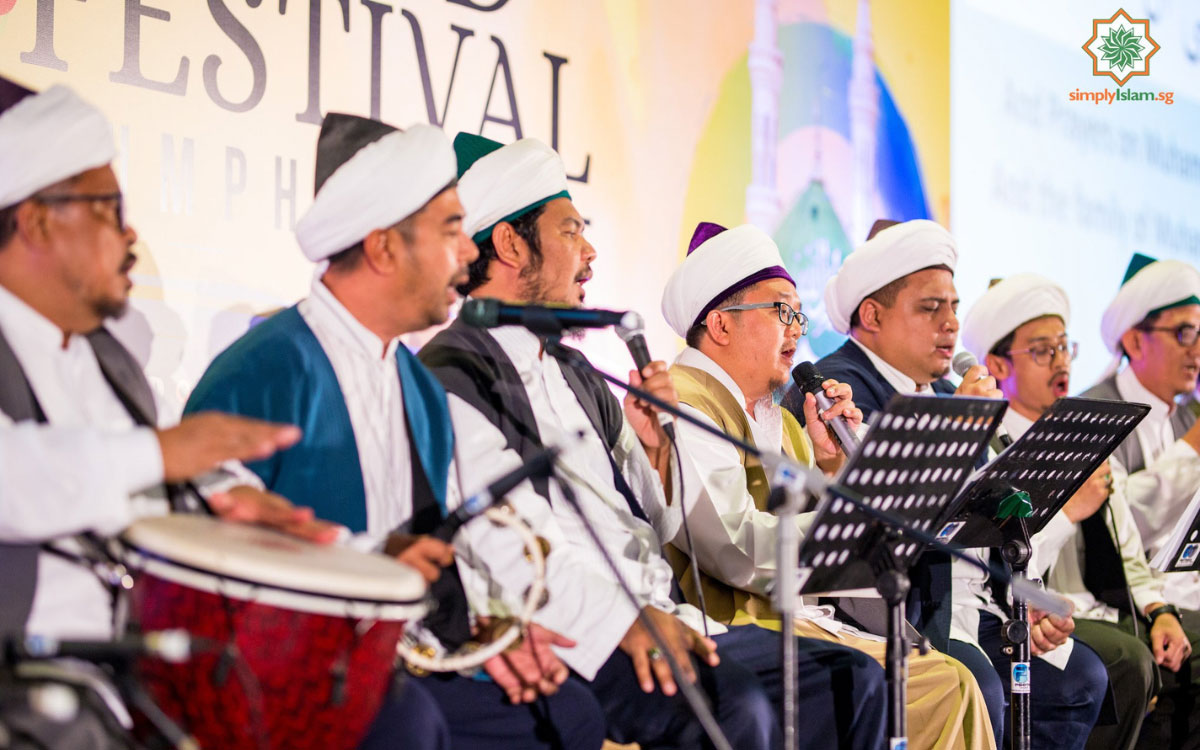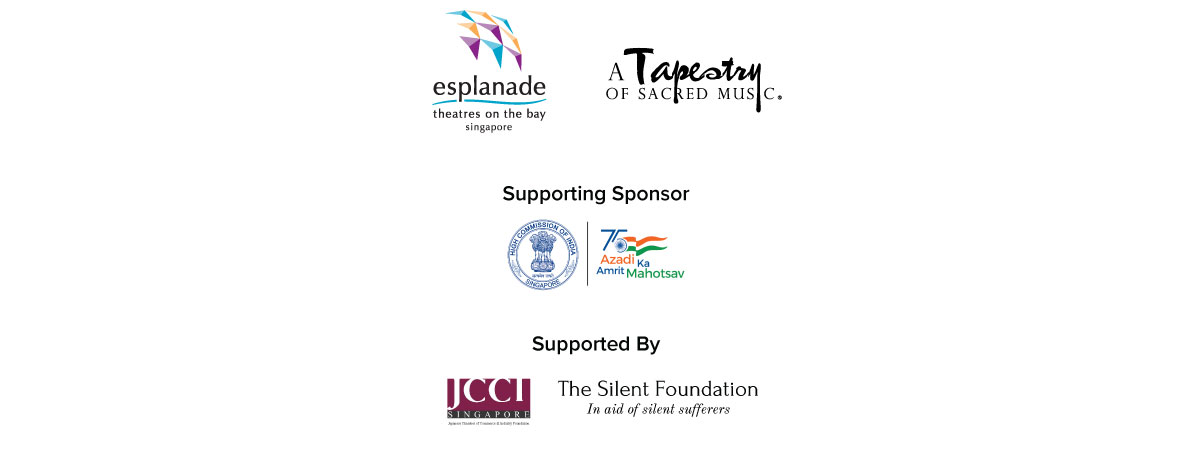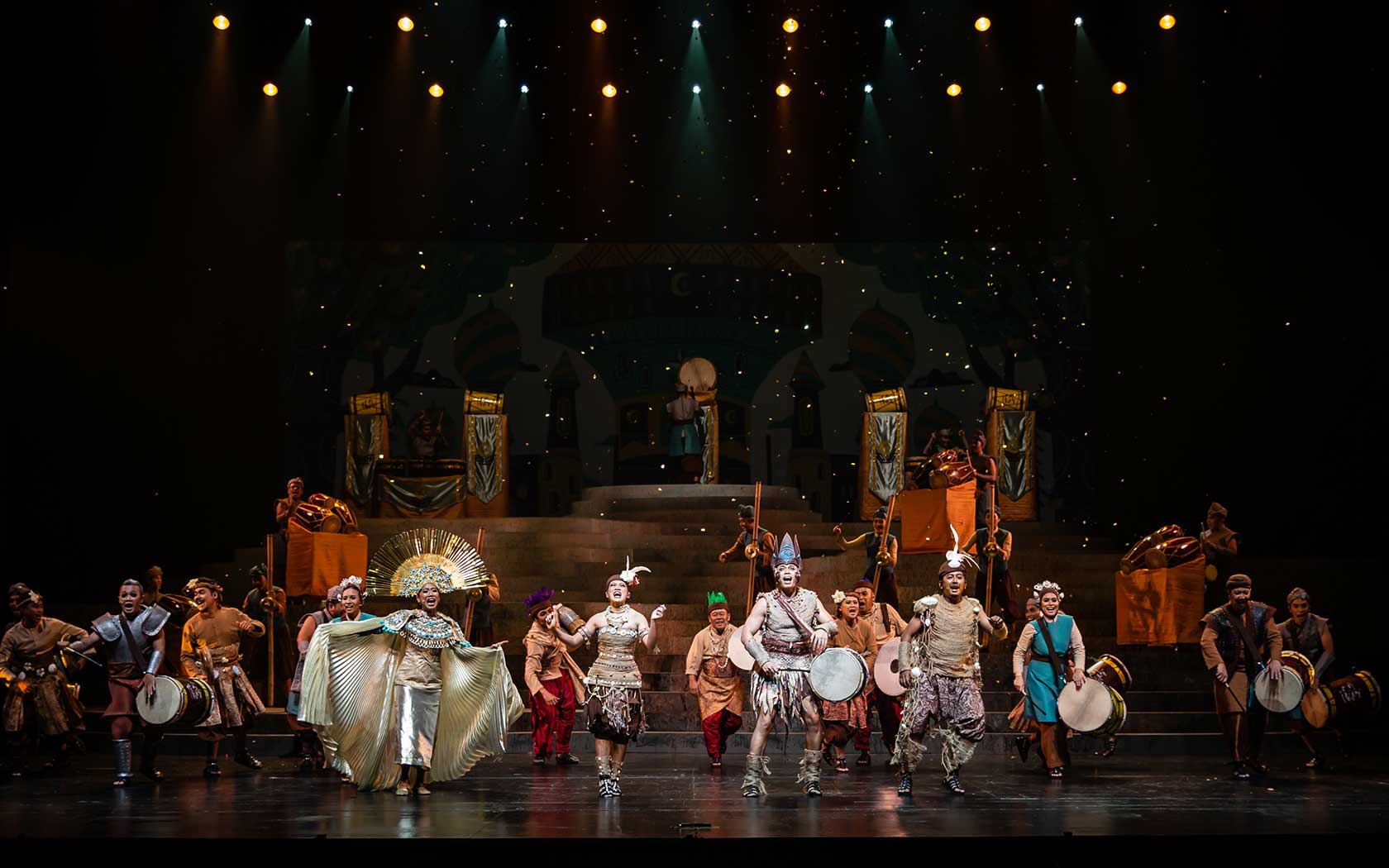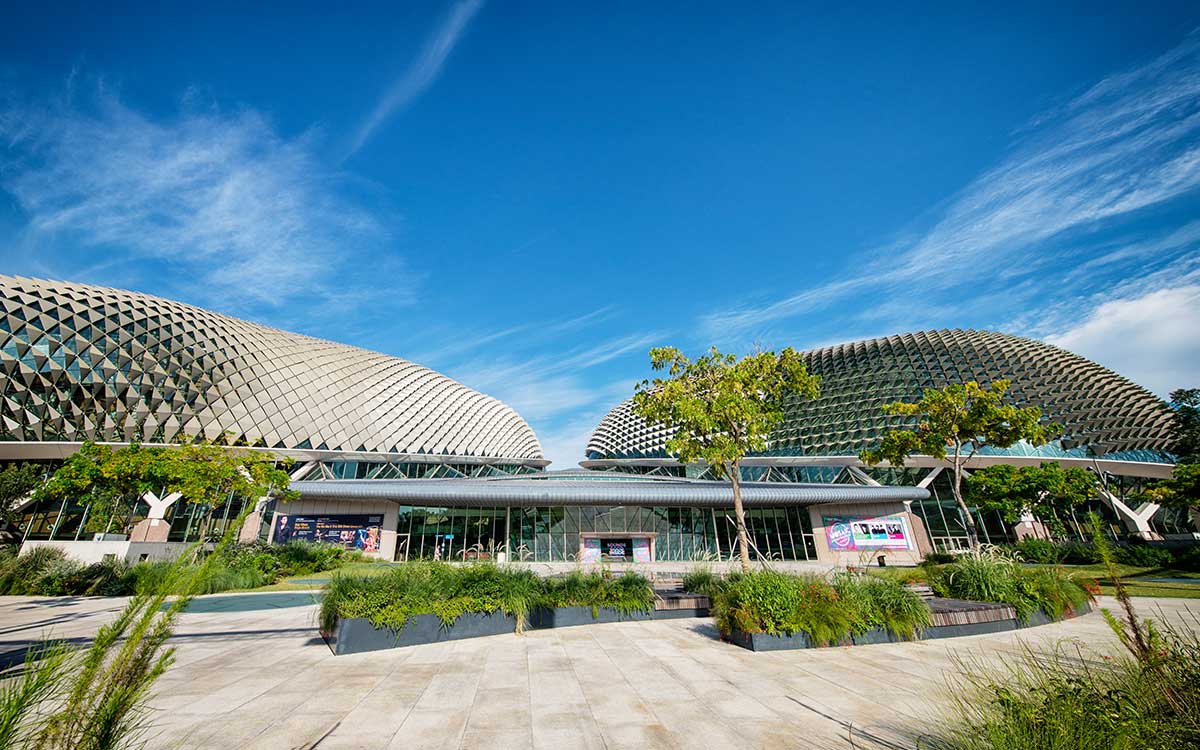We use cookies to improve your experience on our site. To find out more, read our data protection and cookie policy. By using our site, you agree to our use of cookies. Close to continue browsing.
Esplanade Presents
Qasidah: Poems of Praise
28 Apr 2023, Fri, 8pm
30 Apr 2023, Sun, 8.15pm
(Intermission: None)
DBS Foundation Outdoor Theatre at Esplanade
This event is over.

This event is over.
Not much is known about the origin of qasidah, but it is believed to be one of the oldest, most formal and esteemed forms of poetry in the Islamic world. With roots in pre-Islamic tribal and court poetry, qasidah, derived from the verb qasada, means “to intend” or “aim at”. A poem can run up to more than 100 verses, and is arranged to a single rhythm metre and rhyme scheme. From Arabia, it spread through religion, trade and conquests to Persia, North and East Africa, Central and Southeast Asia.
Historically, qasidah was written to be delivered in song. The oldest examples contemplate the poets’ circumstances, praises their tribe or patron, and carries a moral message. Over the centuries, qasidah evolved to express social ideals, political commentary and sometimes satire. Poems of religious praise also took prominence, with the most well-known of them being Qasidah Al-Burdah (Qasidah of the Mantle), written in the 11th century by Egyptian poet Imam Al-Busri.
In this performance at A Tapestry of Sacred Music, the Singapore Haqqani Ensemble presents Amdah Nabawiyah (a term for Islamic music about the life of Prophet Muhammad), through qasidah as well as nasheed, another common style of Islamic vocal music usually performed without instruments. In contemplation of the poetry as it is sung, devotees seek blessings from Allah, as they express their love for him.
The story of Imam Al-Busri
The story goes that Imam Al-Busri was stricken by semi-paralysis after a stroke. In his despair, he composed the Qasidah Al-Burdah in honour of the Prophet Muhammad. While reciting the poem in sincerity and concentration, sleep came over him during which he dreamt of the Prophet, who covered the poet with his mantle. Imam Al-Busri woke up from the dream, completely cured of his affliction. Ever since, the poem has been venerated by many Sunni Muslims, recited as well as used to decorate the walls of public buildings and mosques. Some believe that reciting the poem confers blessings in life, removing them of difficulties, cures against illnesses and successes in different endeavours.
From Arabia to Southeast Asia
In 1200CE, Islam and qasidah poetry spread across Southeast Asia with the immigration of Arab traders. The poems were sung in Arabic, with more popular ones, such as the Qasidah Al-Burdah, translated into the Malay language as early as before the 1600s. The text was sung in commemoration of Prophet Muhammad’s birthday, in rites of passage as well as weekly religious congregations. Shorter songs with verses taken from the original long-form qasidahs were also popularised in performance. The sung poetry is usually accompanied with frame drums such as the Malay rebana (equivalent of the Arabic daff), and the pear-shape lute, gambus.
No tickets will be issued. Seats are available on a first-come, first-served basis.
Singapore Haqqani Ensemble
Also called The Naqsh Band, the Singapore Haqqani Ensemble comprises around 15 members, and they are regularly invited for mawlids and qasidah recitations. Its members are also part of the Naqshbandi Haqqani Spiritual Order, a Sufi order under the leadership of Grand Shaykh Muhammad Nazim Adil Al-Haqqani (Cyprus) and Maulana Shaykh Muhammad Hisham Al-Kabbani (USA).
28 Apr 2023, Fri
8pm
30 Apr 2023, Sun
8.15pm


Become a member

Great arts experiences begin with Esplanade&Me. Join this membership to enjoy ticket specials on shows at Esplanade, early bird specials, promotions at Esplanade Mall, unlimited access to Offstage and more.

Never miss a show again. Get on our mailing list.
- Qasidah: Poems of Praise











